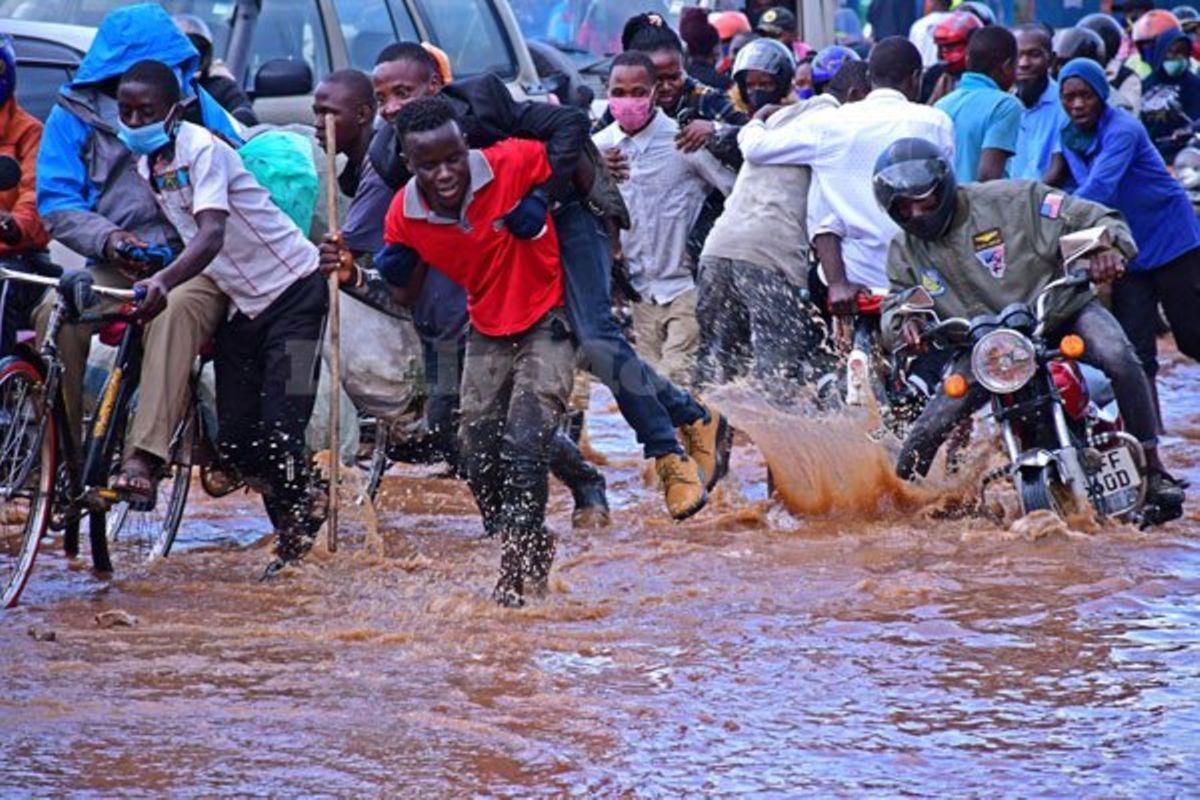Africa-Press – Uganda. The past few weeks have provided emphatic proof that climate shocks are occurring more frequently and with such great intensity. The food crisis in Karamoja Sub-region has bestowed great significance on the need to bolster the resilience of food systems. This past weekend’s flash floods in Bugisu and Sebei Sub-regions further highlighted the troubling dimension of the impact of climate-induced disasters.
We have however chosen to paint the black and white certainties of climate change in shades of grey, much to the consternation of vulnerable groups. This ostrich policy notwithstanding, Igad Climate Prediction and Applications Centre’s regional automated multi-hazard watch system forecasts more trouble ahead. Early warnings have been issued that heavy rainfall will pound isolated parts of eastern and northern Uganda between August 2 to 9, possibly aggravating existing vulnerabilities, tensions and conflicts.
In northern Uganda, the mistrust between natives and settlers is still more prevalent, and more frequently pernicious in its consequences. Energy poverty has driven most of the settlers into deforestation purely to make ends meet. This has ended—as it so often does—on a puzzling note, with accusations and counter-accusations being traded.Blame games have not been in scant supply in the northern region since deforestation is known to occasion continuous floods and dry seasons. These episodes of apportioning blame are, however, hardly constructive. Yet this tone that unapologetically drips with buck passing has been replicated at state level.
Prime Minister Robinah Nabbanja for instance on Monday said the scores of lives lost to the flash floods “could have been avoided if our people had not degraded the riverbanks.” Days before, President Museveni had blamed the current global climate crisis on the “greed” of the global north.
We believe that such blame-shifting and passivity at both macro and micro levels only serves to exacerbate things. The government should instead be working tirelessly to bring in social safety net programmes tailored at protecting households from natural disasters. Government has only succeeded in making it seem like every hoped-for improvement as regards such programmes is expensive and mired in bureaucracy.
Mechanisms of storing water and irrigation are made to look like rocket science when they are anything but. The underlying structural challenges that compel households to either settle in low-lying areas or deforest—to mention but two—have to be decisively addressed. Government cannot continue to pay lip service to inclusion of marginalised and vulnerable groups. It also has to be bound by strict norms of honesty as it looks to put climate-resilient food systems in place. For a country reputed for its arable land, we do a pretty shabby redistribution job.
This has led to perilous climate-induced migrations, with climate migrants settling at riverbanks. While water scarcity, declining crop productivity are the main drivers for such migrations, we have also seen so-called investors set up shop in water catchment areas. It is our earnest hope that the government avoids style over substance by finally allocating more urgency and resources to defeat the growing challenges. As mentioned before, social safety net programmes will come in handy. An assessment of the state of Uganda’s knowledge on climate risks is also long overdue. Deficits have to be addressed so as to ensure adequate provision of reliable, timely and accurate early warning information. A proactive approach should prevail over its reactive cousin. Always.
For More News And Analysis About Uganda Follow Africa-Press






